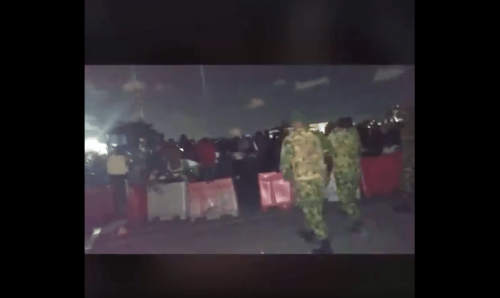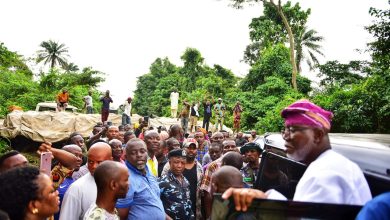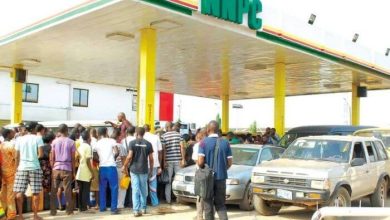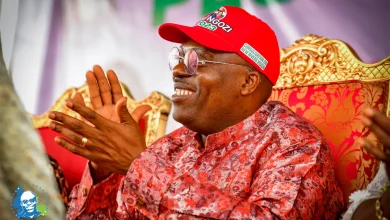#LekkiMassacre: How Nigerian Army, Lagos Government Secretly Took 20 Corpses To State Pathologist

Following the October 20, 2020 gunshots, the Nigerian Army and the Lagos State Government conspired and surreptitiously transported 20 dead from the Lekki Tollgate to the state pathologist for autopsy, according to SaharaReporters.
The Lagos State Pathologist, Prof John Obafunwa, conveyed this revelation confidentially to members of the Lagos State EndSARS panel sitting in Lekki, according to a top source.
The bodies of the Lekki Tollgate victims had already spent three days in the mortuary before being brought before the Pathologist for an autopsy, according to a source familiar with events at the Lagos State University Teaching Hospital, Ikeja.
“On October 24, the Nigerian Army and the Lagos state government transported 20 Lekki massacre victims to a pathologist in Lagos, but they claimed they were persons attempting to get out of Ikoyi prisons.”
“The bodies had been at the morgue for three days before being transferred to the pathologist, which is interesting. This is in addition to the 99 bodies they admitted to taking to the pathologist previously, three of which were from Lekki Tollgate, according to the source.
On June 5, Obafunwa, the Lagos State government’s consultant pathologist, first stated that between October 20 and 24, last year, 99 bodies were deposited in the mortuary of the Lagos State University Teaching Hospital. Only three of them, he was told, were from Lekki.
Nigerians around the country took to the streets in October 2020 to protest police brutality and terrible governance as part of the #EndSARS campaign.
Soldiers from the 81 division’s Bonny Camp, however, attacked the Lekki tollgate, where some demonstrators had congregated, and fired rounds on October 20.
Since the tragedy, there has been debate on the number of people killed.
Obafunwa said 99 bodies were received for autopsy between October 20 and 24 during a session of the judicial panel set up to probe the soldiers’ invasion of protesters.
Apart from the three bodies believed to have come from Lekki, Obafunwa said the rest were brought in from Surulere, Ikorodu, Ajah, and Fagba, among other places in the state.
“They told us to conduct autopsies on victims that arrived between the 20th and 21st of January and up to roughly the 24th of January, and we did the autopsies on bodies from Ajah, Surulere, Ikorodu, Fagba, and Ikoyi prisons, totaling 99. But I’m only bringing the three for Lekki,” he explained.
The pathologist indicated he would have to check his records for the exact date and hour the remains were received.
“I have no idea how many bodies arrived on the 21st. I’d have to go check them out. But I can tell you that we have to finish all the cases between the 20th and the 24th,” he had added.
Obafunwa then proceeded to discuss the autopsy findings for each victim.
According to him, the first victim was brought in from Lekki Bridge and found to have sustained a laceration on one side of his skull, but died as a result of bleeding in his “chest cavity” and “blunt force injuries to the chest.”
The second individual was declared dead in the early hours of October 21 after sustaining an open skull fracture, although there was no trace of gunshot injuries, according to Obafunwa.
He added the second body had hypertension and rib fractures, but the cause of death was “skull and brain injuries related to blunt force trauma.”
According to the pathologist, the third body died of substantial blood loss as a result of complications from a gunshot wound.
Obafunwa was invited to return to the panel on June 19 with reports on the remaining 96 remains after giving his testimony.




